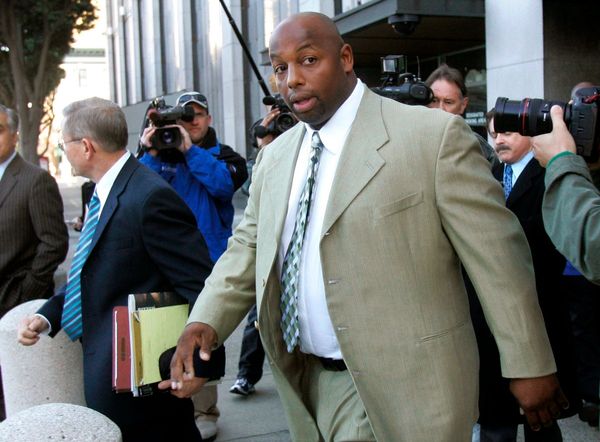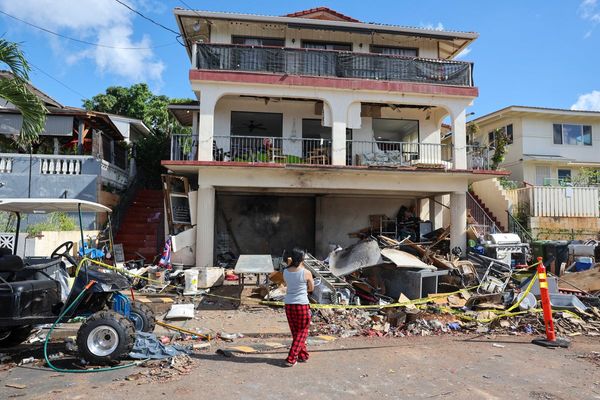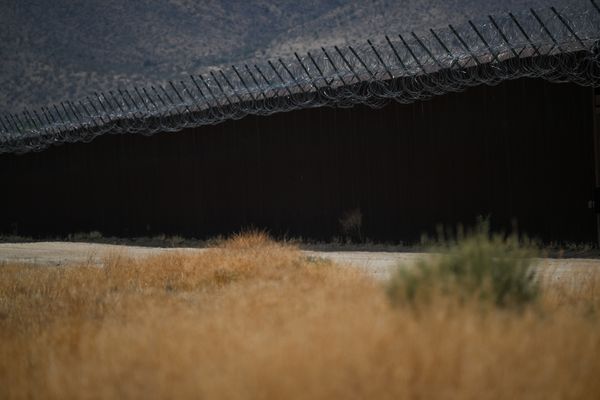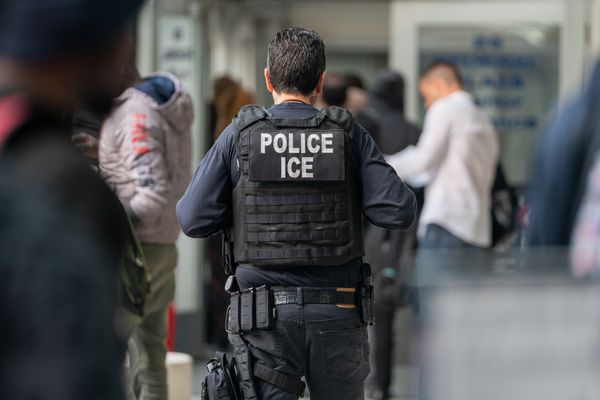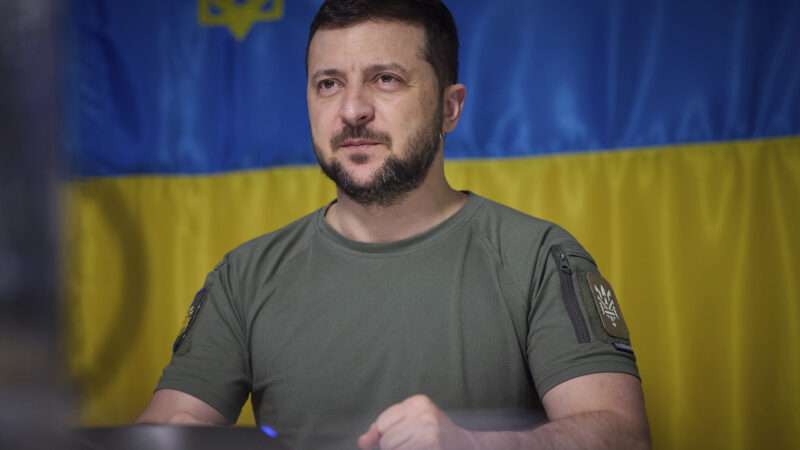
On March 26, during a speech in Warsaw, Poland, President Joe Biden defined the stakes of the war that had enveloped Ukraine during the previous month: "In the perennial struggle for democracy and freedom," he said, "Ukraine and its people are on the frontlines fighting to save their nation. And their brave resistance is part of a larger fight for essential democratic principles that unite all free people: the rule of law; free and fair elections; the freedom to speak, to write, and to assemble; the freedom to worship as one chooses; freedom of the press."
The remarks were in keeping with a widely accepted notion that the conflict constitutes "a battle," as Biden put it, "between democracy and autocracy, between liberty and repression."
There can be no question that the actions of Russia under Vladimir Putin put the country on the side of autocracy and repression. But the West should be clear-eyed about the ways that Ukraine is, and isn't, living up to its end of the democracy-and-liberty formulation.
Ukrainian President Volodymyr Zelenskyy has been hailed as a classical liberal hero, the inspirational leader who captured the world's attention with a series of video messages immediately following the Russian invasion in which he celebrated those who had taken up arms to repel the attack and pleaded with foreign governments to lend a hand. But Zelenskyy has not merely urged his fellow countrymen to follow his lead. With the declaration of martial law in February came a prohibition on male citizens aged 18–60 leaving the country. Then in March, the government combined the country's national TV stations into a single state-approved broadcast and suspended 11 opposition political parties it described as "pro-Russian."
With Ukraine scrambling to defend itself against Putin's lawlessness, the impulse to shut down anyone with Russian sympathies is understandable. But to act on that impulse is to inflict punishment on Ukrainian citizens, including those who voted for the Opposition Platform for Life, which held about 10 percent of seats in Ukraine's parliament and was the main party challenging Zelenskyy before he disbanded its activities. Ukraine has a large Russian-speaking population, and those who have generally favored maintaining close ties with Russia rather than pursuing greater integration with the European Union have a right to their views, and to representation in government, even at a time of war.
Meanwhile, all Ukrainians have a right to share and access information. There was a disconcerting irony in Biden identifying the country as a combatant on the side of free speech and freedom of the press at the same time its president was clamping down on television stations' ability to present the news to their viewers as they think appropriate. At least one outlet with ties to a Zelenskyy rival has been excluded from broadcasting on the new national channel, reported NPR this month. Zelenskyy's office defended the consolidation, reported Reuters at the time, by "citing the importance of a 'unified information policy,'" a phrase that should be chilling to anyone who values free expression.
That used to be most of us. When Putin in March signed a law making it a crime to disseminate "deliberately misleading information" or to discredit Russian military operations, the U.N.'s High Commissioner on Human Rights was aghast. A statement released by that office said the Russian law "depriv[ed] the population of their right to access diverse news and views at this critical time." Russia under Putin does indeed have a lamentable history of censorship, state-backed disinformation campaigns, and persecution of dissidents. But if the Russian people have a right to a diversity of perspectives, surely the Ukrainian people do too.
Even before the invasion, there was evidence that Zelenskyy's government was less than committed to protecting that right. In early February, he removed three TV stations, again described by the government as "pro-Russian," from the airwaves. In January, he decreed that print media outlets registered in Ukraine publish in Ukrainian. That move—a follow-up to a 2019 law, signed by Zelenskyy's predecessor, mandating that Ukrainian be spoken in schools—arguably aided Putin, who has justified his aggression in part by claiming that Ukrainians "who identify as Russians and want to preserve their identity, language and culture are getting the signal that they are not wanted in Ukraine."
Any defense of these policies would presumably rest on the distinction between Putin's control of the Russian media for the purposes of spreading false narratives to mislead the public, both in Russia and in Russian-speaking Ukraine, and Zelenskyy's control of it to set the record straight and protect the Ukrainian public from Russia's propaganda. Putin is a bad guy, in other words, trying to manipulate people, while Zelenskyy is a good guy trying to inform them.
We should be exceedingly careful about accepting such premises. Not because the Russians aren't spreading disinformation. Not even because there's no danger that Ukrainian consumers of Russian propaganda might fall victim to it.
By trying to ensure that the people of Ukraine are exposed to one narrative over another, Zelenskyy is himself engaging in a propaganda campaign. Governments have an obligation, particularly during a crisis, to communicate with the public, and it's natural that officials would seek to bolster the case for their own side. That's propaganda even if the official narrative is entirely (or very nearly so) based in accurate information. Propaganda isn't necessarily nefarious.
But when a government interferes with the people's ability to hear the other side, it ventures into dangerous territory. In a free society, the state should not be trusted to determine what is true or false, or to forcibly deny people access to speech it deems to be contrary to their interests. Even a head of state who really is a "good guy" risks being corrupted by that much power. The same is true of the authority to suspend opposition political parties. (In Ukraine, that move has already led to allegations, as NPR put it, "that Zelenskyy is clearing out political rivals before the 2024 presidential election.")
Nor are attempts to suppress foreign propaganda likely to help the practical situation. In the era of modern technology, supposedly forbidden content is never truly inaccessible. In fact, censorship attempts often have the perverse effect of making the censors look like they have something to hide and drawing more attention to the targeted ideas, a phenomenon common enough to have earned a nickname: the Streisand effect.
Zelenskyy would do better to use his platform to debunk the falsehoods spread by Russia than to try to shut them down. Transparency and forbearance on the part of his government would undermine Putin by highlighting for the world the contrast between the two countries' approaches.
Like the censorship attempts, the restrictions on male citizens' right to leave Ukraine is a human rights violation that may in fact do more harm than good. "It is one thing to conscript men into military service, providing training and appropriate equipment (although, even in that case, a right to conscientious objection must be respected)," law professor Amy Maguire wrote for The Conversation. "It is another thing entirely to prevent civilians from escaping a war zone … The ban on men leaving Ukraine ought to be lifted, because it is legally and ethically wrong to force civilians to stay in harm's way when they have the opportunity and desire to escape."
Recall that one pretense undergirding Putin's invasion was that many Ukrainians viewed the government in Kyiv as illegitimate and would be glad to be absorbed into Russia's sphere of influence. When invading troops were not greeted as liberators—when instead the armed forces and civilian population of the country fought back with far more zeal and effectiveness than anyone was expecting—it made a mockery of the Putin line.
In the earliest days of the war, social media channels were replete with stories like one about a young couple who were "married on the first day of the Russian invasion, and then immediately took up arms" in defense of Kyiv. Ukraine has benefited from the international goodwill that followed from such acts of bravery. Sadly, the policy of holding "fighting-age" men captive erodes the moral high ground from which Ukrainians are struggling to defend their country.
We in the United States have a lesson from our not-so-distant past to draw on when offering this "fraternal correction," as Catholics might call it. We know that during times of war, even relatively free countries can succumb to the temptation to violate rights, particularly of those with ethnic ties to the adversary, in ways they will come to be deeply ashamed of. It happened here within living memory. Today we recognize the relocation of Japanese Americans during World War II as "one of the most atrocious violations of American civil rights in the 20th century."
When Congress later acknowledged that the U.S. government was in the wrong and issued reparations to survivors of the internment camps, no one imagined it was excusing the attack on Pearl Harbor. Likewise, to critique the Zelenskyy government does not lessen the seriousness of the charges against Putin. Russia's unprovoked military aggression, violation of a neighbor's territorial integrity, alleged war crimes, and continual refusal to respect the rights of its own citizens, including by jailing those who dare to speak out against the war, are far worse than anything Zelenskyy has been accused of.
It's possible to condemn the actions of Moscow without forfeiting the right to point out missteps in Kyiv. If we really care about the future of democracy and liberty, we should be willing to do both.
The post If Ukraine Wants To Stand for Liberty and Democracy, It Should Rethink Some of Its Wartime Policies appeared first on Reason.com.
